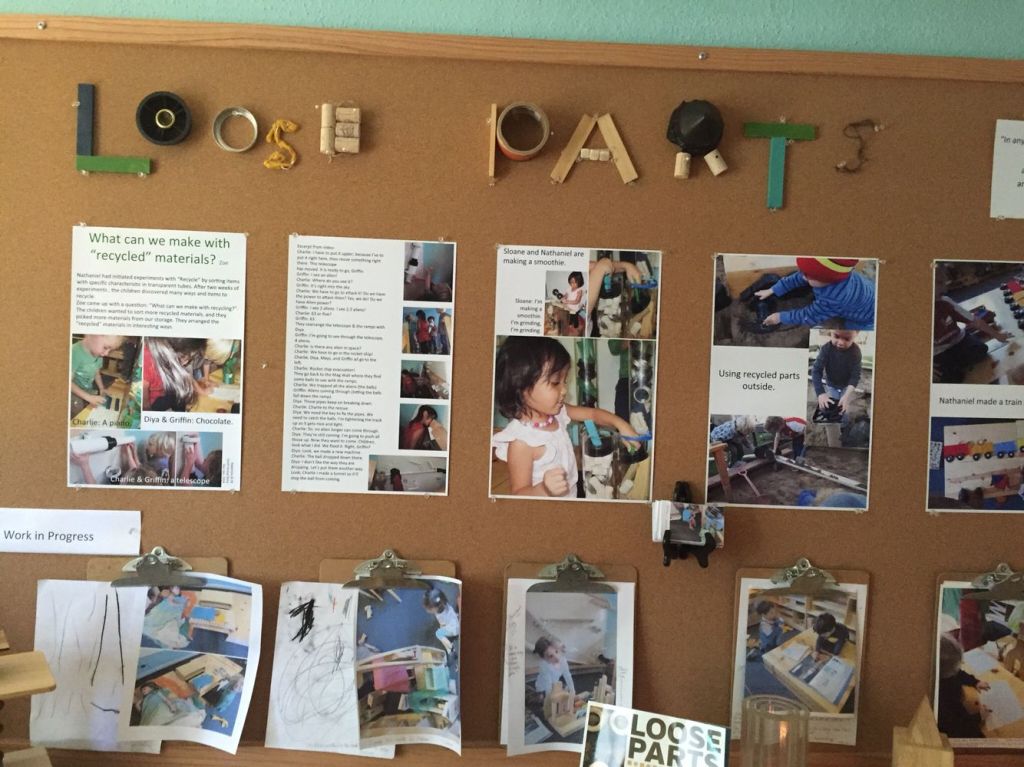Documentation panels play a crucial role in the Reggio Emilia approach, serving as a visual representation of children’s learning processes and experiences. These panels showcase the journey of a project, highlighting the children’s ideas, thoughts, and reflections through photographs, artwork, and written observations. They not only document the learning process but also serve as a form of communication between teachers, students, and parents.
Atelieristas are highly skilled artists who work in Reggio Emilia schools to facilitate creative exploration and expression among students. They collaborate with teachers to integrate art into various projects and encourage children to explore different materials and techniques. Atelieristas play a vital role in fostering creativity, imagination, and critical thinking skills in students.
Parent involvement is essential in Reggio Emilia education as it emphasizes the partnership between families, educators, and the community. Parents are encouraged to actively participate in their child’s learning journey by contributing their ideas, skills, and knowledge to classroom projects. This collaboration creates a strong sense of community within the school environment.
The use of loose parts and natural materials in Reggio Emilia classrooms promotes open-ended play opportunities for children to explore their creativity and problem-solving skills. By providing materials like shells, sticks, fabric scraps, or stones that have multiple uses or interpretations fosters imaginative thinking among students.
Reggio Emilia schools place high importance on creating an environment that is aesthetically pleasing, inviting curiosity and exploration while supporting collaborative learning experiences. The physical space is considered as the “third teacher,” alongside educators and peers. An organized yet flexible layout encourages children to engage with their surroundings creatively.
Project-based learning is at the core of Reggio Emilia philosophy where children are encouraged to investigate topics that interest them deeply over an extended period. These projects allow for interdisciplinary exploration where students can delve into various subjects through hands-on activities while developing critical thinking skills.
In Reggio Emilia approach,’hundred languages’ refers to the belief that children have multiple ways of expressing themselves beyond just verbal language – such as through art-making,singing,dancing,writing etc., encouraging educators to value diverse forms of communication from each child.
Professional development for teachers implementing this approach focuses on ongoing reflection,collaboration,and research,to deepen understanding ,practice ,and application within this educational framework ensuring continuous growth for both educators & students alike
Assessment methods in this model are focused on qualitative observation,data collection,and documentation rather than traditional tests or grades,focusing on understanding each child’s unique strengths,challenges & progress aiding personalized development plans
Reggio Emilia schools emphasize inclusion & diversity,valuing every child’s individuality,respecting different cultures,languages,& abilities while promoting empathy,respect,& understanding amongst all members of its community
Community plays a significant role,influencing curriculum decisions,school policies,and partnerships within reggioschools.The broader community becomes an extensionofthe classroom,enriching student experiences&connecting themto real-world contexts,outside experts,& resources
Outdoor education,nature-basedlearning,is integralin reggiophilosophyencouraging connectionwith nature,promoting environmental awareness&sustainability.studentsaregivenopportunitiestoexploretheenvironment firsthandthroughouttheyearfosteringappreciationfortheoutdoors&ecologicalstewardship

Leave a comment